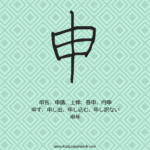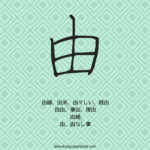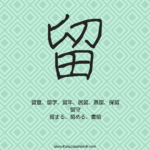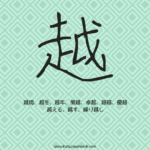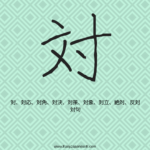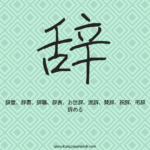EasyJapaneseE provides support to all those who are involved with the Japanese Language:
EasyJapaneseE is happy to offer support to non-native Japanese teachers. Check Japanese Teacher Support Program page!
Latest Blog posts for Learning Japanese
- 申Today’s #kanji is 申, which is listed under the radical of #た(田) but 申 is a pictogram depicting a spine and ribs to mean “to stretch straight.”
- 由Today’s #kanji is 由, which is listed under the radical of #た(田) but 由 is a pictogram depicting a basket to filter unrefined sake.
- 留Today’s #kanji is 留, which is listed under its semantic element of #た(田), farm land. 留 used to be written as 畱 and 丣 is the phonetic element although 留 and 丣…
- 越oday’s #kanji is 越, which is listed under its semantic element of #そうにょう(走), to walk. Its phonetic element is 戉.
- 対Today’s #kanji is 対, which is listed under the radical of #スン(寸). 対 used to be written as 對, which is a compound ideograph made of 丵 + 口 + 寸.
- 辞Today’s #kanji is 辞, which is listed under the radical of #しん(辛). 辞 used to be considered an informal variant of 辭, which is a compound ideograph made of the…
Content Search
Blog Category List – Grammar and Kanji posts are listed in relevant pages
Book a Session
To book a session, please email me at EasyJapaneseE@gmail.com
Request a Topic
If you have a topic you’d like me to explain, please email me at EasyJapaneseE@gmail.com.
References
In order to write my blogs, I use the following dictionaries as my references
- KOD – 研究社 Online Dictionary
- 『現代国語例解辞典』(1985)小学館
- 『基礎日本語辞典』(1989) 角川書店
- 『大修館新漢和辞典(改訂第二版)』(1988) 大修館書店
- “Concise Oxford Dictionary (Tenth Edition)” (1999) Oxford University Press
